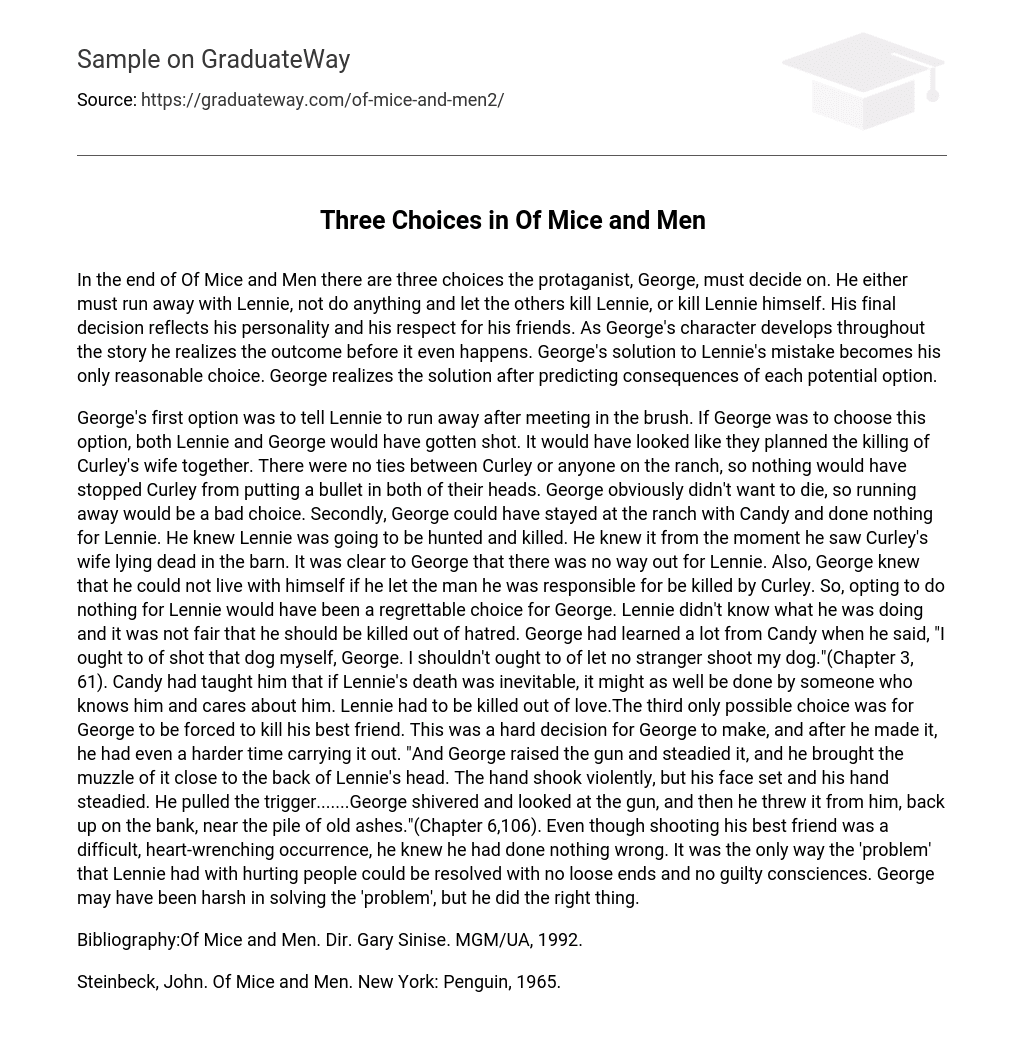In the conclusion of the novel Of Mice and Men, protagonist George faces three possible courses of action. He can either escape with his friend Lennie, allow the other characters to take matters into their own hands and kill Lennie, or take it upon himself to end Lennie’s life. Ultimately, George’s final decision reflects both his inner nature and his loyalty to his companions. As the narrative progresses, George’s character evolves and he anticipates the consequences of each potential choice. Consequently, George’s resolution to rectify Lennie’s mistake becomes the only logical option available to him.
George’s initial choice was to instruct Lennie to flee upon their encounter in the brush. Opting for this decision would have resulted in both Lennie and George being shot. This act would appear as if they had conspired to kill Curley’s wife. As there were no alliances or connections between Curley and anyone else on the ranch, nothing would have hindered Curley from fatally shooting both of them. Clearly, George had no desire to meet his demise, hence running away would prove to be an unfavorable option.
George had another option at the ranch with Candy. He could have chosen to do nothing for Lennie, despite knowing that Lennie was in danger of being hunted and killed. This realization came to George when he discovered Curley’s wife dead in the barn. George understood that there was no escape for Lennie. Moreover, he couldn’t bear the thought of letting Curley be the one to kill the man he was responsible for. It would have been a choice filled with regret if George had opted not to take any action for Lennie. After all, Lennie didn’t comprehend the consequences of his actions, and it would have been unjust for him to be killed out of pure dislike. This is something George had learned from Candy, who regretted not taking responsibility for his own dog’s death: “I should have personally ended my dog’s suffering, George. I shouldn’t have allowed a stranger to shoot him.” (Chapter 3, 61).
Candy had taught George that if Lennie’s death was inevitable, it should be done by someone who knows and cares about him. Ultimately, Lennie had to be killed out of love. The only other option was for George to be forced to kill his best friend, a difficult decision for him. After making the decision, George faced even greater difficulty in carrying it out. “And George raised the gun and steadied it, bringing the muzzle close to the back of Lennie’s head. His hand shook violently, but his face remained determined and his hand steadied. He pulled the trigger. George shivered and glanced at the gun, then tossed it away onto the bank near a pile of old ashes” (Chapter 6,106).
Despite the difficulty and heartbreak of shooting his best friend, George knew that he had not committed any wrongdoing. It was the only solution to resolve Lennie’s propensity to harm others, without leaving any loose ends or guilt behind. Although George’s approach may have been harsh, it was justified as the right course of action.
Bibliography
- Of Mice and Men. Dir. Gary Sinise. MGM/UA, 1992.
- Steinbeck, John. Of Mice and Men. New York: Penguin, 1965.





